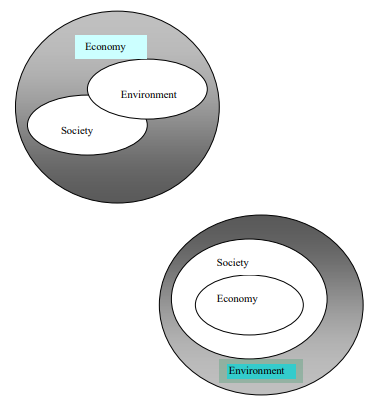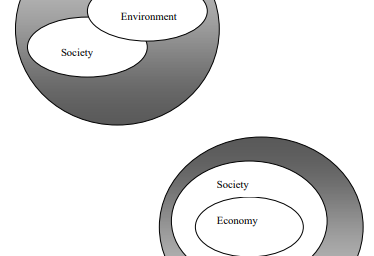Community, school & backyard sustainable eco-gardening and food production gardens
We believe we are in a unique position – due to our experience and knowledge – to offer our customers sustainable eco-gardens which will provide healthy eating, healthy gardening, healthy wildlife, healthy environment and a healthy future.
In 1972 the Club of Rome (a scientific think-tank) published The Limits to Growth – a compelling case for the common-sense argument that, on a planet with limited resources, there are limits to growth. While the idea of limits to growth appealed to the layperson’s common sense, it ‘seriously perturbed Western intellectuals’ and angered economists, conservatives and politicians alike, who viewed any criticism of economic growth as a direct attack on free market capitalism.
A well known refutation of the limits to growth argument came from the economist Julian Simon, professor of business administration and senior fellow of the libertarian think tank, the Cato Institute. He argued in his book The Ultimate Resource (1981) that human resourcefulness would ensure that resources would never run out because, if a particular resource become scarce, either new sources would be discovered, people would learn to do more with less, or substitutes would be found. Consequently, in the 1980’s the idea that continuous economic growth could not be ecologically sustainable was replaced by the notion of ‘sustainable development’, which argued that ways could be found to sustain economic growth without creating too much pollution or environmental degradation.
The starting point for sustainable development as a special goal for humanity is generally accepted as the publication in 1987 of the United Nations Brundtland Commission Report on Sustainable Development. It states: “Sustainable development is development that meets the needs of the present without compromising the ability of future generations to meet their own needs.” A broad definition of sustainable development involves the promotion of a dynamic balance between three key factors:
- protection of the natural environment
- maintenance of economic security
- respect for social values
While the concept of a limit to economic and population growth is seldom found in recent economic and political texts, it is still alive in ecology and environmental science where, rather than being discussed in terms of limit to growth, ecological sustainability is discussed in terms of carrying capacity and ecological footprint.
The ecological footprint, a different way of expressing carrying capacity, was developed by Mathis Wackernagel and William Rees in the early 1990’s. In summery:
“The Ecological Footprint is a tool for measuring and analyzing human natural resource consumption and waste output within the context of nature’s renewable and regenerative capacity (or biocapacity). It represents a quantitative assessment of the biologically productive area (the amount of nature) required to produce the resources (food, energy and materials) and to absorb the wastes of an individual, city, region or country.” (Venetoulis et al. 2004: quoted in Beder, 2006)
It is becoming increasingly clear that the environment is deteriorating and that rather than depletion of resources providing the limits to growth, it is the pollution and environmental degradation resulting from ever-increasing production and consumption that is the real threat to the planet’s future.
Paul Ekins (1992) noted in his review of the shift from limits to growth to sustainable development, whether one is a technological optimist or pessimist, the technological changes that are necessary require ‘adoption of ecological sustainability as the principle economic objective in place of economic growth’. (See Beder, 2006, pp. 12-31 & Cross and Spencer, 2009, pp. 1-12)
Our – Australian’s & all of humanity’s – stance should be clear here – we need to make a ‘necessary revolution’ in our thinking and choices – our societies’ obsession with economic growth and consumption cannot continue to dominate the world’s diminishing resources, and thus, threaten the earth’s environmental sustainability.
Our tool box for the future needs to shift from the Industrial Age point of view:

The Industrial Age world view sees the largest and most important circle as the economy, with society and the environment as much smaller domains within. However, in the real world, “the economy is the wholly owned subsidiary of nature, not the other way round.” (Quote from former US senator – Senge, The Necessary Revolution, p. 103)
This stance may appear radical to some political points of view. However, as David Lindenmayer suggests, we are on borrowed time and we need to act now even if all the answers are not available to us.
We recommend the following reading:
- Sharon Beder, Environmental Principles and Policies: an interdisciplinary approach, (2006), UNSW Press
- Rob Cross and Roger Spencer, Sustainable Gardens, (2009), CSIRO Publishing
- David Lindenmayer, On Borrowed Time: Australia’s Environmental Crisis and what we must do about it, (2007), Penguin Books
- Peter Senge, The Necessary Revolution, (2010), Nicolas Brealey Publishing
- Robin Stewart, Australian Green Home & Garden – Practical and inexpensive ways to reduce the use of chemicals in your home and garden, (2003), Black Inc.
- Ted Trainer, Saving the Environment: What it will take, (1998), UNSW Press


